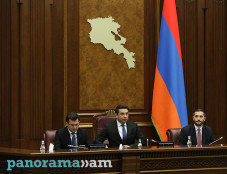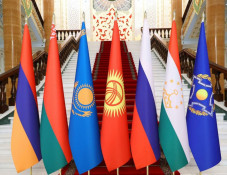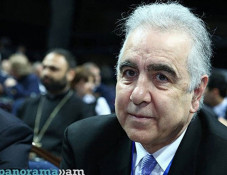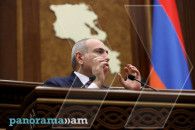
The New York Times: Azerbaijani authorities blackmail US because of rapprochement with Moscow
The Azerbaijani government’s growing hostility toward Washington the journalist Joshua Kucera writes in an article published in The New York Times, analyzing the latter events taken place in Azerbaijan.
In the article Kucera writes that since gaining independence from the Soviet Union Azerbaijan has been a strong partner of the United States. It has worked with Washington to break Russia’s energy monopoly in the region by supporting the construction of oil and gas pipelines to Turkey. It is a key transit point for military cargo to and from Afghanistan. And the government in Baku has forged close ties with Israel, based primarily on the trade of weaponry and oil.
The author recalls that a 2009 U.S. diplomatic cable described Azerbaijan’s foreign policy as characterized by “pragmatism, restraint and a helpful bias toward integration with the West.” “But as Russia’s dramatic new foreign policy changes the strategic landscape across Eurasia, Baku appears to be recalculating whether its ties to the West really are advancing its own goals,” Kucera writes.
He points out that the attack on RFE/RL followed months of extreme anti-Western rhetoric. Top Azerbaijani government officials have accused the United States ambassador to Baku of “gross interference” and former Foreign Minister Carl Bildt of Sweden of being an American spy. In early December, the president's chief of staff, Ramiz Mehdiyev, published a 13,000-word article claiming that the C.I.A. was contriving regime changes in the post-Soviet space (the so-called color revolutions). It also called Azerbaijan’s human rights activists a “fifth column” of the United States.
“Human rights activists have criticized American and European governments for being too soft on Baku. Washington has called the raid on RFE/RL merely “cause for concern.” In spite of Azerbaijan’s dismal human rights record, it has been awarded prestige projects like the chairmanship of the Council of Europe’s Committee of Ministers in 2014, and it will be hosting the European Games this summer,” Kucera writes.
Anti-American rhetoric from Baku is not unheard of, but its recent intensity, seemingly unprompted, and its reliance on Kremlin talking points suggest a shift toward Moscow. “It’s a measure of the Azerbaijani government’s disdain of Washington that the raid on RFE/RL was conducted just days after Secretary of State John Kerry spoke with President Ilham Aliyev on the phone,” the author notes and reminds how in an interview in December, Ali Hasanov, a top presidential adviser, was asked why the government began to so sharply criticize the United States but not Iran or Russia, answered that the latter don’t criticize Azerbaijan.
In this situation Azerbaijan’s mimicry of Russian rhetoric and rapprochement with Moscow is an implicit threat to Washington: Give us what we want, or we’ll go over to Russia. The United States doesn’t need to give in to this blackmail.
Newsfeed
Videos






























